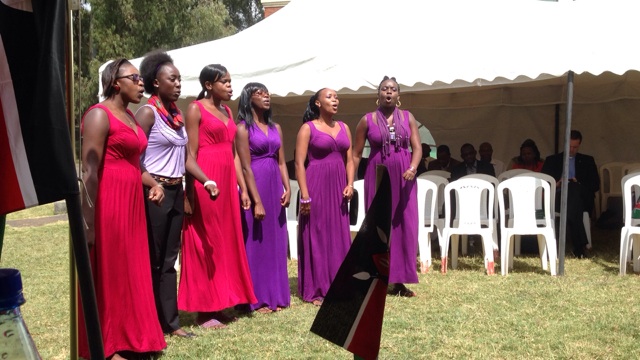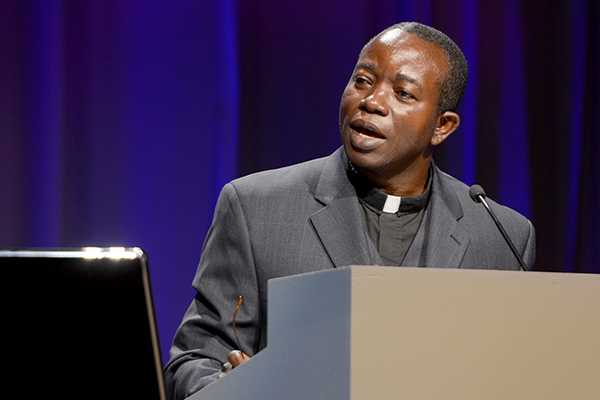
Bishop Amos Bolay at the LCMS 2013 convention. (Photo: LCMS Communications.)
WEST AFRICA – The Lutheran Church—Missouri Synod (LCMS) notes that partnerships that began with the Lutheran Malaria Initiative (LMI) are now making the response to West Africa’s Ebola crisis easier—an unanticipated benefit of the project.
“With our experience in doing the Lutheran Malaria Initiative, we had no problem organizing an Ebola-relief project to assist the church and people of Liberia,” said Bishop Amos Bolay of the Evangelical Lutheran Church of Liberia (ELCL). “With a good structure in place, you can easily do other new projects.”
Bishop Bolay said that, with support from the LCMS and Lutheran World Relief (LWR), the ELCL is readily able to provide relief supplies to churches, hospitals and quarantine centers in Liberia in response to the crisis.
“When people are being quarantined, the next problem becomes the need for food. And so, we quickly responded with large supplies of food, especially rice and oil, along with chlorine and buckets for hand-washing as prevention against the deadly Ebola epidemic,” he said.
Partnerships with governmental and nongovernmental agencies also are essential to responding to Ebola. Such partnerships have been established faster than normal through LMI.
“One of our goals in helping our partner churches build capacity is accessing additional funding once all of the LMI funds have been depleted,” said Martha Mitkos, the LCMS’ campaign director for the Lutheran Malaria Initiative, a cooperative project of the LCMS and LWR. “In order to do that, we must help [partner churches] establish relationships with their local governments and organizations like The Global Fund, The President’s Malaria Initiative and USAID. It can take years for these relationships to develop. However, things have moved really fast in Liberia because of the connections and expertise of our local consultant, Dr. Mosoka Fallah.”
Mitkos said Fallah is an epidemiologist and public health specialist with extensive knowledge and expertise in the areas of malaria, Ebola, and other endemic health issues affecting developing nations. She said Fallah also used his expertise to help the ELCL obtain a seat with Liberia’s National Malaria Steering Committee to assist in determining how malaria funds are spent in the country.
“Because of the trust that has been established through LMI in the local communities in and around Monrovia, Liberia, the ELCL has been able to provide Ebola relief under the same umbrella and through the same volunteers that serve LMI,” said Mitkos. They have been able to access communities where LMI is currently working to educate and help end malaria deaths. Ultimately, the trust and relationship building afforded through the church’s gifts to LMI have helped the people of Liberia to see the church as a place of hope with the crucial goal of [proclaiming] the life-saving Gospel of Jesus’ life, death and resurrection for our sins.
Nurturing long-term partnerships is crucial to the future success of both LMI and the response to Ebola, said Tracy Quaethem, project coordinator for the LCMS Office of National Mission.
“The way that the LMI is structured provides a great match for Ebola [response] efforts in West Africa,” said Quaethem. “Rather than ‘outsiders’ who come in and then are quickly gone again, LMI focuses on those who have vested, caring bonds within the community.”
The Evangelical Lutheran Church in Liberia was founded in 2009 following the merger of four separate Lutheran groups in Liberia. The church has 350 congregations, 30 schools, and 11,000 members. It established altar and pulpit fellowship with The Lutheran Church—Missouri Synod in 2012, with the LCMS ratifying that agreement at its 2013 national convention. The LCMS has more than 2.3 million members and is part of the International Lutheran Council, a global association of confessional Lutheran churches.
Earlier this year The Lutheran Church—Missouri Synod announced a number of initiatives to help combat the Ebola outbreak in West Africa. The church has provided financial support to Liberia, Guinea, and Sierra Leone. In November the church also announced travel scholarships for medical personnel who wish to support African partners in treating Ebola.
———————
Adapted from a LCMS Reporter article.

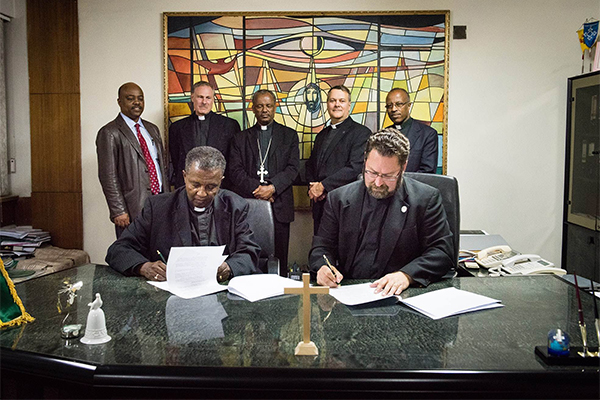
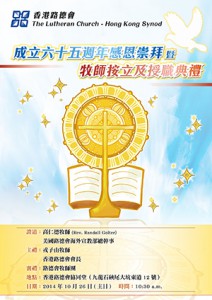
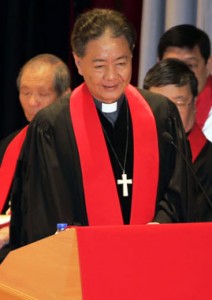
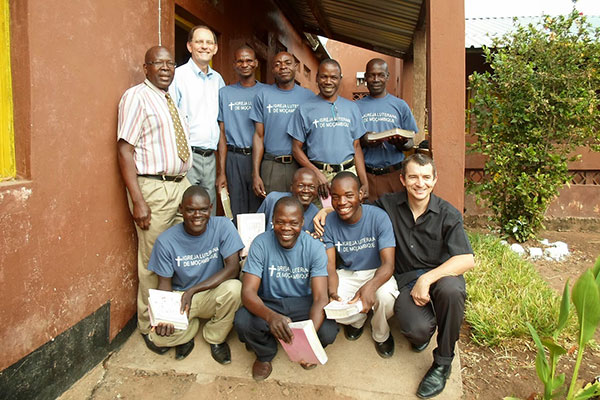
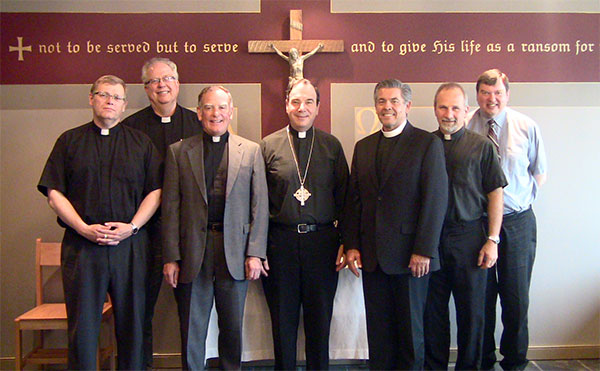
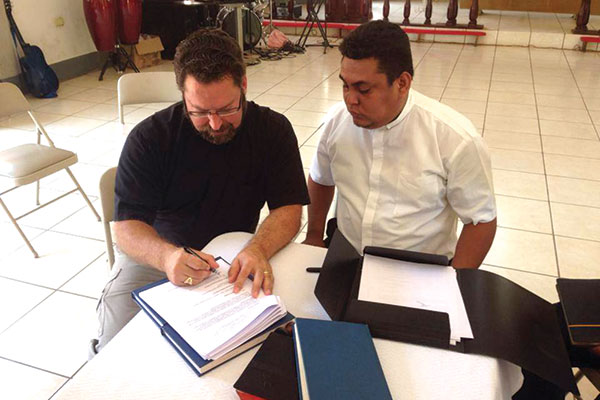
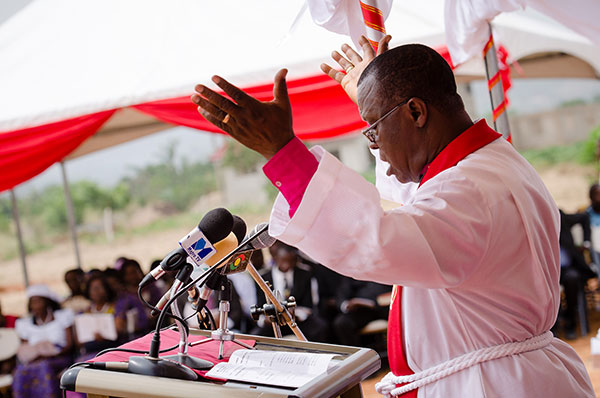
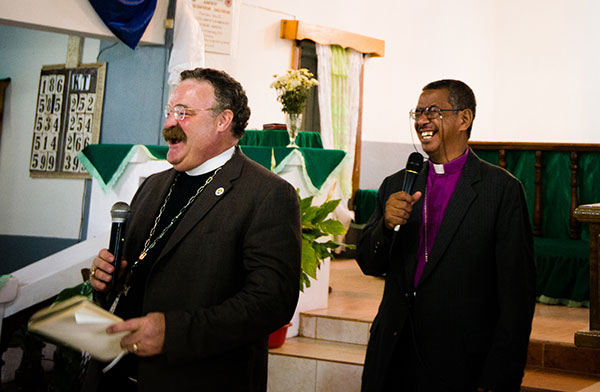
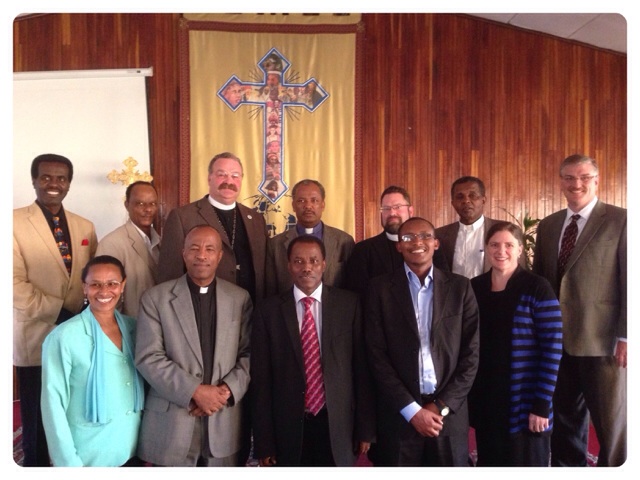
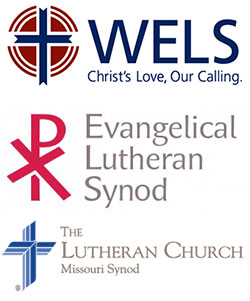 TUCSON, ARIZONA – Representatives from The Lutheran Church—Missouri Synod (LCMS), the Evangelical Lutheran Synod (ELS), and the Wisconsin Evangelical Lutheran Synod (WELS) met for three days of meetings in December 2013 in Tucson, Arizona, in keeping with the encouragement given by the 2013 conventions of both WELS and the LCMS.
TUCSON, ARIZONA – Representatives from The Lutheran Church—Missouri Synod (LCMS), the Evangelical Lutheran Synod (ELS), and the Wisconsin Evangelical Lutheran Synod (WELS) met for three days of meetings in December 2013 in Tucson, Arizona, in keeping with the encouragement given by the 2013 conventions of both WELS and the LCMS.
